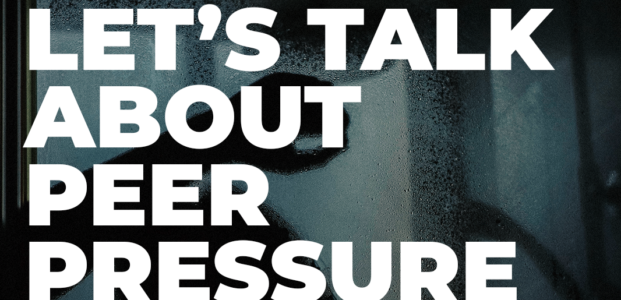Disclaimer: This article does not contain legal advice and includes discussions of sexual assault as well as alcohol and drug use, which some readers may find distressing. If you need to reach out to seek help or support, please contact 1800RESPECT.
Negative peer pressure is an underlying problem that many face, especially young people. But it is a much more pressing matter than perceived.
It is a certainty that anyone can and will experience some form of peer pressure in their youth. I think that it is important to acknowledge the presence of positive peer pressure, where someone can be encouraged to try a new hobby or to work hard to pursue their goals. What is often undetectable is negative peer pressure, where some can be forced into uncomfortable and dangerous environments.

Though it can be viewed simply as an encouragement, or persistence to partake in activities that are normalized within adolescents, the truth is that situations can escalate quickly. Young people can find themselves in difficult scenarios, where they feel the need to conform to societal norms and therefore act accordingly. Most commonly, this can be alcohol and drug consumption, the problem with this being that it can impact the ability to give affirmative consent.
Once intoxicated, our brain and body function become altered. This results in the potential dangers of sexual assault and rape as the individual under the influence may not be able to provide affirmative consent. Someone who is drunk or high may lack the ability to make informed decisions about sexual activity and consent is a concept that can never be assumed. Once in this state, it is immensely easier to give into peer pressure which means that your ability to say ‘no’ can be ignored and your apprehensions can be denied by others.
There needs to be more urgency surrounding the dangers of negative peer pressure. Regardless of what is said, changing someone’s mind or convincing someone to participate in sexual activity is not a form of consent. Any form of persuasion or guilt tripping is sexual coercion, something that is experienced by too many people in Australia.
As a high school student, as well as thousands or others, I am exposed to realities of peer pressure and how the burden of negative influences can force an individual to behave a certain way. The need to maintain a particular reputation is a common, universal experience, but it is better to only participate in activities that we choose to be apart of. We all know alcohol and drug-use alters the way an individual can function, but what is not talked about enough is how it can also impact consent. Whether partying with friends, clubbing or dating, it is always better to reconnect later when both individuals can give affirmative consent then risking consensual sexual activity within the moment.
The main concern is that victims may blame themselves, believing that it was a result from their decision to drink or consume drugs. This cannot be further from the truth. Not being able to give affirmative consent does not mean that it can be assumed by a partner, ever. It is important to acknowledge that if you think an individual not able to give consent, then they most likely cannot and this must be respected.
There must be more conversations about the dangers of negative peer pressure, particularly amongst youth. We must normalize the reality that substance consumption increases exposure to sexual assault and puts consensual sex at risk. It is always better to be cautious then to violate another person.

